Blanca Deusdad(ELIMINAR) (PI)

PhD in Sociology (UB, 2002). Degree in Geography and History, specializing in cultural anthropology (UB, 1989). She received a Postdoctoral Fulbright Fellowship (2004-2005) for Boston University and for Harvard University (2006 and 2008). Professor at the URV since 2009. She has been the coordinator of the EU project Horizon 2020: SoCaTel. A multi-stakeholder co-creation platform for better access to long-term care services (2017-21), in which the SoCaTel platform for carrying out digital co-creation of long-term care services has been developed from a humanistic centric approach. Two twinning projects from DigitalHelathEurope, 2020 in Italy (Veneto) and In-4-AHA (EIP on AHA), 2022 in the Czech Republic (Ústí nad Labem) on the adoption of the SoCaTel platform have also been developed. She has also participated in other European funded projects on long-term care: the COST Action social services, welfare states and places (2011-15) and COST Action Ageism a multi-national, interdisciplinary perspective (2014-18). Guest Editor of the Special Issue of the Journal of Social Service Research (2016) about ageing and the economic crisis. She was the coordinator of the Master Degree on Medical Anthropology and Global Health (2016-2018). She is also collaborator at the Finnish Centre of Excellence AgeCare, University of Jyväskylä, where she is involving in digitalisation of care work. She is also an associate member of Boston University's Institute for the Advancement of the Social Sciences and member of the UNESCO Housing Chair at the URV.
Research interests: Ageing, ethics and the use of emergent technologies and AI in ageing and social services; Integrated care, community-based care and co-creation; Loneliness and ageism; Ageing-in-place and new models of housing for older adults; Intercultural education and citizenship education.
Social networks
- Personal web: https://blancadeusdad.eu/
- www.socatel.eu
- https://www.researchgate.net/profile/Blanca-Deusdad
- https://independent.academia.edu/blancadeusdadayala
- https://orcid.org/0000-0002-7005-0551
Fernando Vidal(ELIMINAR) (PI)

ICREA (Catalan Institution for Research and Advanced Studies) research professor at DAFITS-URV. He holds degrees in psychology and history and philosophy of science from Harvard, Geneva, Paris and the École des Hautes Études en Sciences Sociales. He has been a Guggenheim Fellow and visiting researcher and professor at several European, Asian and South and North American institutions. In 2017 he was elected to the European Academy; in 2021, he received the Carlson Prize for his contribution to the history of the human sciences, a field in which he has researched on multiple topics spanning from early modernity to the present. His main interests include the history and anthropology of biopolitics and the 'psi' universe; contemporary neurocultures; the phenomenology of disorders of consciousness and neurodegenerative diseases; the person-body-subjectification complex in the Western tradition and in cross-cultural perspective; bioethics.
Social networks
Ho Seok Ahn(ELIMINAR)
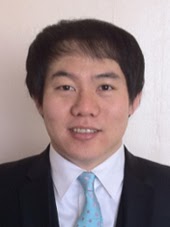
He is a senior lecturer [Associate Professor] at the Department of Electrical, Computer and Software Engineering, University of Auckland (New Zealand), since 2015. He received his B.S. degree in Information and Communication Engineering from Sungkyunkwan University (Republic of Korea), and his Ph.D. degree in Electrical Engineering and Computer science from Seoul National University (Republic of Korea) in 2005 and 2010, respectively. He was a researcher at Samsung Software Membership, Samsung Electronics Co. (Republic of Korea) from 2001 to 2008. He was a visiting researcher at the Intelligent Systems Research Institute at Advanced Industrial Science and Technology (Japan) in 2006, funded by JSPS and NRF. He was a senior researcher at Korea Institute of Industrial Technology (Republic of Korea) from 2010 to 2012. He was a lecturer at the University of Science & Technology (Republic of Korea) from 2011 to 2012. He was a research scientist at Intelligent Robotics and Communication Laboratories, Department of Ambient Intelligence, Advanced Telecommunications Research Institute International (Japan) from 2012 to 2013. He was a postdoctoral researcher (research professor) at the University of Auckland (New Zealand) from 2013 to 2015. His research interests include social robots, cultural robots, Human-Robot Interaction, affective computing, artificial emotional systems, healthcare robots, intelligent interactive systems, facial robots, android robots, humanoid robots, intelligent service robots, and modular robot systems. He has 2 books, and published over 100 research papers, 3 book chapters, 18 patents, and over 100 technical reports. He got 19 Best Paper Awards, 1 Best Research Award, and 29 Awards from Robotics Competitions, such as intelligent robot competitions and FIRA robot soccer championships.
Social networks
- https://scholar.google.com/citations?user=TQRy_ocAAAAJ&hl=en
- https://www.linkedin.com/in/ho-seok-ahn-96355448/?originalSubdomain=nz
- ORCID: 0000-0001-7418-6280
- https://www.researchgate.net/scientific-contributions/Ho-Seok-Ahn-2191067113
Artemio Baigorri Agoiz (ELIMINAR)
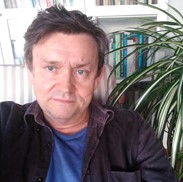
Information Sciences-Journalism (UAB) and Political Sciences and Sociology-Sociology-Social Psychology (UPSAM), PhD in Sociology (UNED), his thesis Towards the Global City was awarded the National Prize of the Royal Academy of Doctors (1999). He worked as a journalist (1973-1980), as an independent consultant and in his own companies (1980-1995) until joining the University of Extremadura (1995), on urban planning, regional/local development, labor market, environmental problems, etc. Associate professor (tenured, 2001) and visiting lecturer at universities in Spain and Portugal, France, the United States, Mexico and Colombia. He has directed 7 doctoral theses at the Universidad de Extremadura, Complutense de Madrid y Pontificia de Salamanca en Madrid, published numerous articles and published as author or co-author more than fifty books since 1977. Founder and PI (1996-2020) of the ARS research group. In relation to the theme of the project, he has participated in research projects and publications on social impacts of aging, active aging, senior universities, among others.
Social networks
Rafael Böcker Zavaro(ELIMINAR)
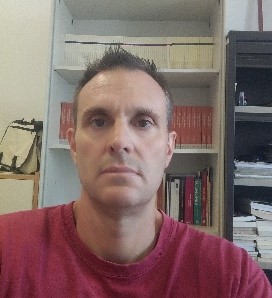
Professor of Sociology at Universitat Rovira i Virgili (URV). He holds a PhD in Economics and Business from URV and a Bachelor's degree in Sociology from the University of Buenos Aires. Additionally, he completed a postgraduate program in Politics and Economics at the Institute of Advanced Social Studies at the National University of General San Martín (Argentina). He has undertaken research stays as a visiting scholar at the Lateinamerika Institut of the Freie Universität Berlin (Germany), the National University of Mar del Plata (Argentina), and the Centre for Ibero-American Studies of Charles University in Prague (Czechia). He has also collaborated on joint projects with research groups in Argentina, Chile, Mexico, and Costa Rica. His main research areas include economic sociology, historical sociology, and development policies. He is the author and co-author of various books and articles in scientific journals.
Social networks
- ORCID: 0000-0002-9638-0276
- https://www.researchgate.net/scientific-contributions/Rafael-Boecker-Zavaro-49466343
- https://dialnet.unirioja.es/servlet/autor?codigo=1993277
Elizabeth Broadbent(ELIMINAR)
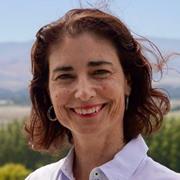
She initially trained as an electrical and electronic engineer at Canterbury University to pursue her interest in robotics. She then worked at Transpower, Électricité de Tahiti, and Robotechnology. After becoming interested in the psychological aspects of robots and in psychoneuroimmunology, she obtained her MSc and PhD in health psychology. She was a visiting academic at the school of psychology at Harvard University and in the Program in Science, Technology, and Society at Massachusetts Institute of Technology in Boston, USA in 2010. In 2017, she returned to Boston with a Fulbright award to study companion robots. Elizabeth is known for the development of the Brief Illness Perception Questionnaire, drawing assessments, and illness perception interventions. In the technology space, she is particularly interested in the emotional connections we form with robots, and how we can build emotional intelligence and empathy skills in robots, to help support patients. This research extends to virtual humans, an advanced form of computer agent with artificial intelligence. She is interested in how technology can be used to empower patients. Her work has been supported by grants from many agencies including the Health Research Council, Marsden Fund, Auckland Medical Research Foundation, Heart Foundation, Oakley Mental Health Research Foundation, Maurice and Phyllis Paykel Trust, the Foundation of Research Science and Technology, and MBIE.
Her research has featured in the New York Times, Scientific American Mind, the Guardian, Time magazine, the BBC World Service, and other media.
Social networks
- ORCID: 0000-0003-3626-9100
- https://scholar.google.co.nz/citations?user=8Vybc4IAAAAJ&hl=en
- https://cares.blogs.auckland.ac.nz/
Manuela Caballero Guisado(ELIMINAR)

She holds a PhD in Sociology and is a full professor of Sociology at the University of Extremadura (UEx), where she teaches at the Faculty of Economics and Business. She is the coordinator of the research group Analysis of Social Reality (ARS_sociológica) belonging to the Science and Technology System of the Regional Government of Extremadura. She has published in prestigious national and international journals and has carried out research stays at important European and Latin American universities and institutes. Her main lines of research focus on socio-environmental issues (environment-society interaction) and the effects of ageing processes in advanced societies
Social networks
- ORCID: 0000-0001-6750-9918
- ARS en la red X https://X.com/ARSsociologica
Andreu Català Mallofré(ELIMINAR)

Full Professor at the Universitat Politècnica de Catalunya, he is a Director of the Research Centre for Dependency Care and Autonomous Living. His research interests include Assistive Technologies, Artificial Intelligence, Social Robotics, Wearable and Intelligent sensors. Coordinator of international and national research projects, among them the European Thematic Network in Falls Prevention Intervention and Security (E-NOFALLS 2013-16). He is also the spin off promoter of SENSE4CARE.
Social networks
- ORCID: 0000-0001-8775-1955
- https://www.linkedin.com/in/andreu-catala-mallofre-ba70a31b/?originalSubdomain=es
- https://scholar.google.com/citations?user=4RboygwAAAAJ&hl=ca
Miguel Centella Moyano(ELIMINAR)
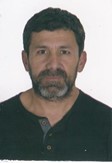
Degree in Political Science and Sociology (Complutense University of Madrid, UCM) and degree in Law. Master's in Constitutional Law and Political Science (Center for Political and Constitutional Studies). Ph.D. in Political Science and Sociology (UCM). Currently an Associate Professor and researcher in the Department of Business Management and Sociology at the University of Extremadura (UEx), where he is part of the Social Reality Analysis research group (ARS). He has been a visiting researcher at the Université de Sciences Humaines (Strasbourg), the Centre d'Études Sociologiques Sorbonne (CESS) (Paris), as well as at the European Commission (Brussels), the Directorate-General for Parliamentary Research Services of the European Parliament (Luxembourg), and the Institute for Advanced Social Studies (IESA-CSIC) (Córdoba). His research focuses on welfare and labour policies, especially active employment policies, active retirement, and dependency care.
Social networks
- ORCID: 0000-0002-3622-372X
- https://www.linkedin.com/in/miguel-centella-moyano-0b9bb5120/?originalSubdomain=es
- https://www.researchgate.net/profile/Miguel-Centella-Moyano
Marija Djurdjevic(ELIMINAR)
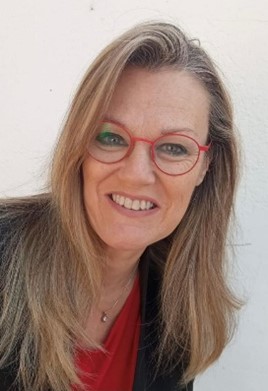
She operates at the intersection of higher education, research, and R&I management. She holds a Ph.D. in Social Sciences & Humanities from Pompeu Fabra University, Barcelona. Her expertise lies in action research and qualitative research within the Social Sciences, covering a range of topics. Most recently, she has focused on public sector innovation and change management, specifically in transforming social and healthcare services for older adults and vulnerable groups. In the domain of R&I management, she has been working as pre- and post-award international manager (FP7, H2020, HE) at the Department of Anthropology, Philosophy, and Social Work (DAFITS) at Rovira i Virgili University. As the project manager of the "SoCaTel project: A multi-stakeholder co-creation platform for better access to long-term care services" (IA, H2020), she was responsible for the successful implementation of the project and conducted research into the barriers and enablers of the adoption of the SoCaTel tool and method.
Social networks
- ORCID: 0000-0001-9575-8591
- https://www.researchgate.net/profile/Marija-Djurdjevic
- https://urv.academia.edu/MarijaDjurdjevic
Lidia G. Domínguez-Párraga(ELIMINAR)

Graduated in Sociology from the University of Salamanca (2012), holds a master's degree in Social Problems from the National University of Distance Education (2014) and a PhD in Social Sciences from the University of Salamanca (2019). Currently, she is an Assistant Professor and researcher at the University of Extremadura (UEx). She is a member of the Social Reality Analysis (ARS in Spanish) research group at UEx. She has published several articles in national and international journals with impact factors and book chapters in prestigious publishing houses. Her research focuses on active ageing (always from a gender perspective), particularly on aspects such as the analysis of elements affecting active ageing; the interaction between older people and their environment; the study of the consequences of active ageing; technological advances (robotics) and their impact on the lives of older people. Currently, she is involved in the national projects "Design of a Social Robot under Functional Constraints (SHADOW)" and "Human-Robot Interaction with Older Adults with Dementia: Sociocultural and Gender Differences and Ethical and Professional Implications in the Use of Companion Robots (MyRobot)".
Social networks
- Orcid 0000-0001-8054-8196
- Scopus ID: 57210176913
- https://www.researchgate.net/profile/Lidia-Dominguez-2/stats/report/weekly/2024-12-01
- https://scholar.google.es/citations?user=Il0k9YUAAAAJ&hl=ca
Barbara Fersch(ELIMINAR)
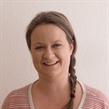
She is a sociologist, mainly applying qualitative methods and working conceptually. In recent years her research focus has been on the intersection between organizations and frontline professionals on the one hand and their users (citizens, clients, patients etc.) on the other, predominantly in the provision of health and social services. She is interested in aspects of trust and care, in particular in the context on uncertainty, risk and crises. One major development she has been focusing on recently is digitalization and the introduction of digital technology into the described intersection. She is also interested in the impact of specific local contexts of service provision, as the conditions for the provision of these kind of services differ profoundly and considering that rural areas are facing certain specific challenges in this. She is currently PI of the Erasmus + Cooperation project Rural eHealth Facilitators - REACT (2022 - 2025) aiming to develop a concept to strengthen the inclusion to digital health and social services in rural areas.
Social networks
- ORCID: https://orcid.org/0000-0003-4835-9891
- https://www.scopus.com/authid/detail.uri?authorId=55533869100
Annette Leibing(ELIMINAR)

She is a medical anthropologist with a special interest in psychiatry, ageing (esp. Alzheimer, Parkinson), medications, and, more recently, the cultures of stem cells. From 1995-2000 she was a professor at the Institute of Psychiatry, Federal University of Rio de Janeiro where she founded the Center for aging and dementia (CDA). After a postdoctoral fellowship at McGill University, at the department of Social Studies of Medicine, she is now a professor of medical anthropology at the Faculty of Nursing, Université de Montréal and a researcher of the research groups CREGÉS (Qc), MéOS (Qc) and associated researcher at PACTE (France), PEPAS (Brazil), and NEPSC (UCSAL' Brazil). Her most recent books are entitled Thinking about Dementia - Culture, Loss, and the Anthropology of Senility (2006), The Shadow Side of Fieldwork - Exploring the Blurred Borders between Ethnography and Life (2007), and a volume on "technologies of hope".
Social networks
Bruce MacDonald

Bruce completed a BE (1st class) and PhD in the Electrical Engineering Department of the University of Canterbury. After working with NZ Electricity for three years and a year at the DSIR in Wellington, he moved to Canada and spent ten years in the Computer Science Department of the University of Calgary. Returning to New Zealand in 1995, he joined the Department of Electrical and Computer Engineering at the University of Auckland. The department was then starting a new development in computer systems engineering and he was involved in setting that up. Bruce also started the Robotics Laboratory, and evolved this to the CARES centre. His long term goal is to design intelligent robotic assistants that improve the quality of people's lives, with primary research interests in human robot interaction and robot programming systems, and applications in áreas such as healthcare and agriculture. He is the director of the department's robotics group and the leader for the multidisciplinary CARES robotics team at the University of Auckland. He is the deputy chairman for NZ's robotics, automation and sensing association NZRAS. For NZ's national science challenge Science for Technological Innovation (SfTI), he is a deputy director, theme leader for Sensors, Robotics and Automation and responsible for capacity development activities. He is co-chair for the IEEE technical committee on software engineering for robotics. One of his research programmes is to develop robots to help care for older people, which is a multidisciplinary project undertaken jointly with Korean researchers and companies. This has developed in to a variety of social robotics projects, now led by Dr Ho Seok Ahn and Professor Liz Broadbent, both deputy directors of CARES. Another current research project is for multipurpose orchard robotics, a joint project with NZ researchers and companies.
Social networks
- Research team: https://cares.blogs.auckland.ac.nz/
- https://www.researchgate.net/profile/Bruce-Macdonald-3
- https://scholar.google.com/citations?user=sWz5--8AAAAJ
Tania Molero-Aranda(ELIMINAR)
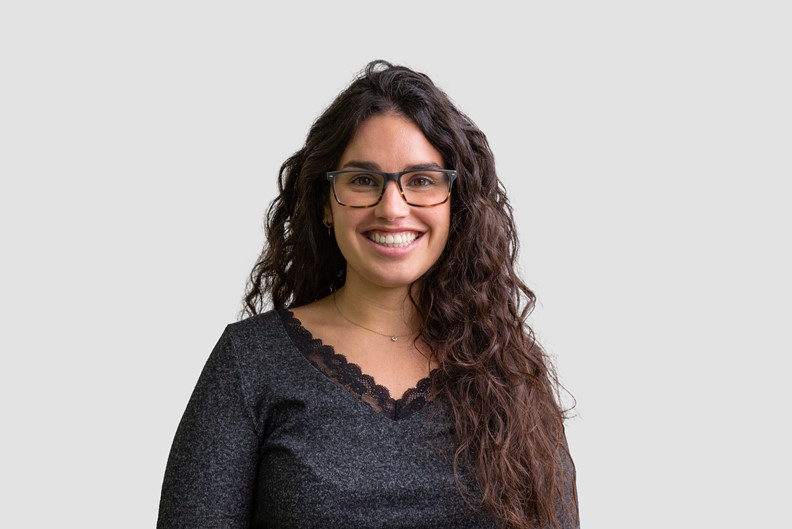
Graduated in Early Childhood Education and Interuniversity Master's Degree in Educational Technology at Rovira i Virgili University (URV). PhD in the Educational Technology programme at the URV. Lecturer in the Department of Pedagogy and member of the Applied Research Group in Education and Technology (ARGET) at the same university. Her main lines of research are Digital Teaching Competence, Teacher Training and Digital Inclusion and Accessibility. Her experience in the Educational Resources Service of the Rovira i Virgili University has given her skills in the use of different technologies, as well as in the design and implementation of face-to-face and virtual training for university teachers, mainly. She has participated in several national and international projects related to the evaluation and certification of digital competence in teaching from an inclusive perspective. She leads an innovation project to improve the training of future teachers related to the inclusive use of digital technologies in highly complex school environments.
Social networks
- ORCID: 0000-0002-1470-4549
- @tania_molero (X)
- Tania Molero-Aranda (linkedIn)
Giulia Perugia(ELIMINAR)
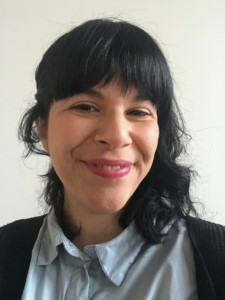
She is an Assistant Professor at the Human Technology Interaction Group of Eindhoven University of Technology (TU/e, Netherlands). She holds a BA in Literature and Linguistics from the University of Roma Tre (Italy), a MSc in Cognitive Science from the University of Siena (Italy), and a double degree PhD in Assistive Technologies from the Polytechnic University of Catalonia (UPC, Spain). From 2018 to 2021, she was a postdoctoral researcher at Uppsala Social Robotics Lab (Sweden). As a social scientist, her research lies at the intersection of Social Robotics, Social Psychology, and Ethical and Inclusive HRI. In detail, she is interested in finding new ways to measure people's perceptions and states during the interaction with robots, discovering how such states and perceptions develop over time, and understanding whether and how the design, perception and interaction with social robots could reproduce biases and stereotypes existing in society at large.
Social networks
- https://www.researchgate.net/profile/Giulia-Perugia
- https://www.linkedin.com/in/giulia-perugia-phd-9b691884/
- https://scholar.google.com/citations?user=JWi1wlgAAAAJ&hl=en&oi=ao
Anna Ramon-Aribau(ELIMINAR)

She is a Professor in the Department of Social Sciences and Community Health at the Faculty of Health Sciences and Wellbeing, University of Vic-Central University of Catalonia, and a member of the M3O research group. She holds a PhD in Sociology from the University of Barcelona, with expertise in qualitative and quantitative research methods and data analysis. She has conducted research stays at the University of Arizona and Harvard University. Her work focuses on social determinants of health, contributing to European-funded projects like ALICERAP on addiction policies. She also holds a Master's in University Teaching, with research on teamwork competence assessment, and participates in teaching innovation projects. Her research interests include research design, public health, and quality of life.
Social networks
- ORCID: 0000-0003-3303-9932
- https://www.scopus.com/authid/detail.uri?origin=AuthorProfile&authorId=57210732618
- https://www.linkedin.com/in/ramonaribau/
- https://dialnet.unirioja.es/servlet/autor?codigo=2614786
- https://www.researchgate.net/profile/Anna-Ramon-2
Pablo Ruiz Osuna(ELIMINAR)

He holds a Law degree (2016), a Master's in Business and Contract Law (2018-2019), and a Master's in Legal Practice (2017-2019). Doctor in Law cum laude. Currently, he is part of the UNESCO Chair of Housing at the Rovira i Virgili University. He was awarded a grant from the Martí i Franquès Research Fellowship Program (2019PMF-PIPF-11) to carry out his doctoral thesis, which focuses on intelligent robots as new citizens of the city of the future. His research provides an initial approach to the need for developing a comprehensive regulation of robotics that ensures an ethical framework for artificial intelligence in our society, as well as a liability regime for damages caused by robots.
Social networks
- ORCID: https://orcid.org/0000-0001-5510-8981
- https://www.linkedin.com/in/pablo-ruiz-osuna-6808401a3/
- https://www.researchgate.net/profile/Pablo-Ruiz-Osuna

